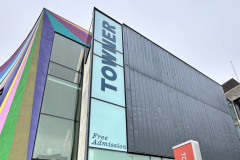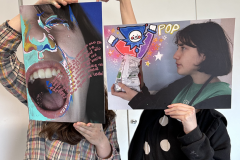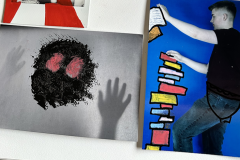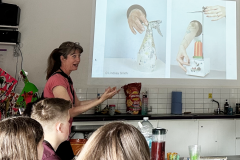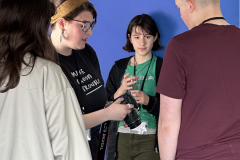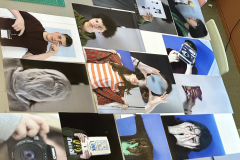This is just a quick note to say a big thank you to you! Thanks to all our supporters, partners, clients and workshop participants – together we’ve created some truly inspiring artwork, films, podcasts, and mystical stories!
Just some of this year’s highlights
We’re very proud of the work that’s come out of 2024 – the young people we’ve worked with have created some fantastic creative content.
From Series 5 of Raising Teens which was broadcast in January and February on BBC Sussex and Surrey (all episodes are available to listen to here), to our final project of 2024, developing workshops for the Future Creators programme.
Our Holiday, Activities and Food drama club saw us back in the gorgeous South Downs National Park with Dragon Drama for a week of storytelling, den-building and… well, drama!
We spent a delightful couple of days in the summer with Wakehurst’s work experience students. Their podcasts: Orchids, Poo Sprinkles and Us and Angry Ponds and Nuclear Spreadsheets (listen below) are well worth a listen – they’ll transport you back to the summer with the sounds of nature recorded in the gardens.
Our film for the East Sussex social prescribing pilot tells the stories of children, families and professionals involved in the pilot.
Our Catalyst programme came to a close this autumn – we had an incredible 190+ young people attend workshops with some fantastic artists over the past two years. You can see their creative work in the Catalyst Gallery on our website. Below are images from the final Catalyst workshop at The Towner in Eastbourne with artists Lindsey Smith and Tom Goulden from Priority 1-54.
To close the year, we held workshops as part of the Future Creators programme. Ben and Freya’s Teen Tunes podcast is a delightful listen. In it, they talk about their musical influences, what inspires them and what they want to do in the future.
We also worked with students from BACA who designed some brilliant graffiti boards with graffiti artist Tom Goulden. Their artwork represented the things they’re passionate about – from bringing more colour to Brighton through street art and the cost of living, to women’s rights and secure housing. They learnt how to interview each other and to make a podcast to discuss what could be done to make things better in future. (See photo at the top of this blog post!)
So that’s it for 2024. See you next year!

